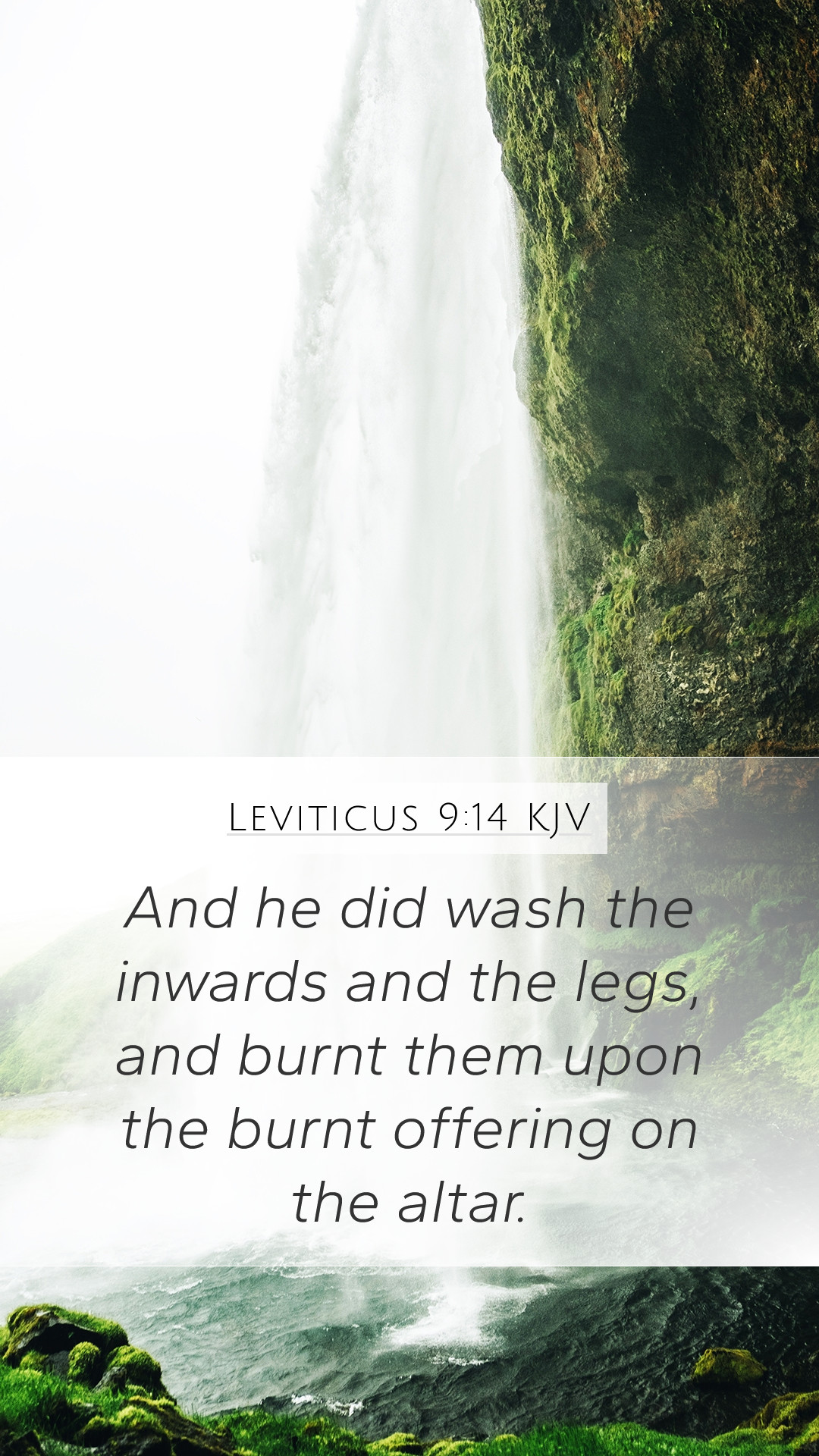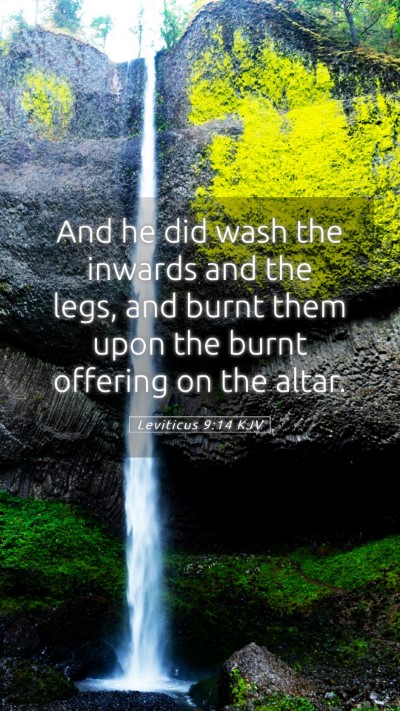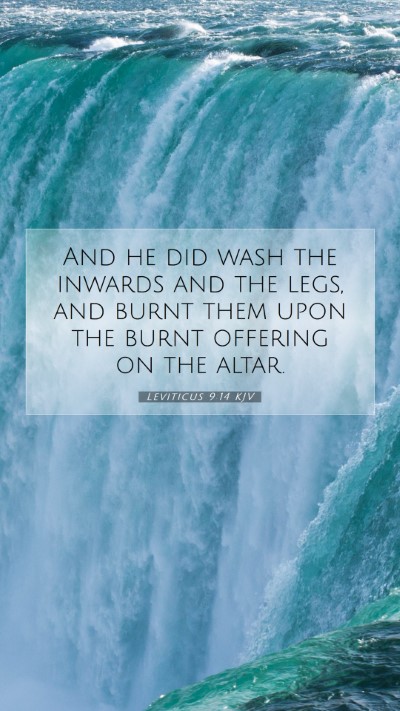Understanding Leviticus 9:14
Bible Verse: Leviticus 9:14
Meaning and Analysis:
Leviticus 9:14 states, "And he washed the inwards and the legs, and burnt them upon the burnt offering on the altar." This verse occurs at a significant moment in Leviticus, highlighting the prescribed rituals that the Israelite priests were to follow in their service to God. The washing of the inwards (internal organs) and legs of the animal signifies a ceremonial purification process critical for the offering to be acceptable before God.
Bible Verse Commentary from Public Domain Sources
-
Matthew Henry:
Henry emphasizes that the act of washing symbolizes the need for holiness in worship. He points out that both the practical act of cleansing and the symbolic purity represent the believer's need to present themselves clean and holy to God. The internal organs are seen as a representation of the heart and inner life, which must be consecrated and without impurities.
-
Albert Barnes:
Barnes draws attention to the ritualistic aspects, noting that such offerings were not just ceremonial but also pedagogical, teaching the Israelites about atonement and the seriousness of sin. He elaborates that the washing signifies preparation and readiness for the offering, aligning with the broader context of sacrifice within the covenantal relationship between God and His people.
-
Adam Clarke:
Clarke interprets the washing of the inwards and legs as indicative of the necessary care priests must take in performing their duties. He connects this act to broader themes of preparation and dedication in worship. Clarke also notes that this ritual shows the seriousness of approaching God and the requirements placed on those who serve as mediators between God and Israel.
Significance of Leviticus 9:14
This verse serves multiple functions in understanding biblical worship practices:
- Holiness and Approachability: It underscores the holiness required in approaching God, emphasizing that worship must be pursued with an attitude of reverence and preparation.
- Symbolic Purification: The washing reflects a deeper spiritual truth where believers are called to pursue purity in worship and daily living.
- Covenantal Relationship: It highlights the ongoing importance of sacrifice in maintaining a right relationship with God, foreshadowing later New Testament teachings on Christ as the ultimate sacrifice.
Bible Study Insights
Leviticus 9:14 offers profound insights for Bible study groups and individuals engaging in online Bible study. It encourages examination of:
- How Old Testament sacrifices inform New Testament understandings of grace and atonement.
- The role of individuals in maintaining a personal life of holiness.
- The importance of preparation in worship settings, mirroring principles found in other scriptural teachings.
Related Scripture Cross References
- Exodus 29:17: Discusses the role of internal organs in offering sacrifices, establishing a connection to the purity required for acceptable offerings.
- Leviticus 1:9: Provides insight into the nature of burnt offerings, further elaborating on the significance of fire in the worship context.
- Hebrews 10:4: Reflects on the inadequacy of animal sacrifices as a means of atonement, which ties back to the ultimate sacrifice of Christ.
Application of Leviticus 9:14
In practical terms, this verse challenges believers to:
- Evaluate their own practices of worship and ensure they come before God with purity and intentionality.
- Understand the depth of sacrifice required to maintain a relationship with God, drawing parallels to the ultimate sacrifice of Jesus Christ.
- Engage in Bible study lessons that explore the significance of Old Testament rituals in the lives of New Testament believers.
In summary, Leviticus 9:14 serves as a crucial reminder of the holiness of God and the seriousness with which we must approach Him in worship. For those seeking to understand Scripture, engage in meaningful Bible study, or unravel the deeper meanings of Bible verses, this passage invites reflection and application.


